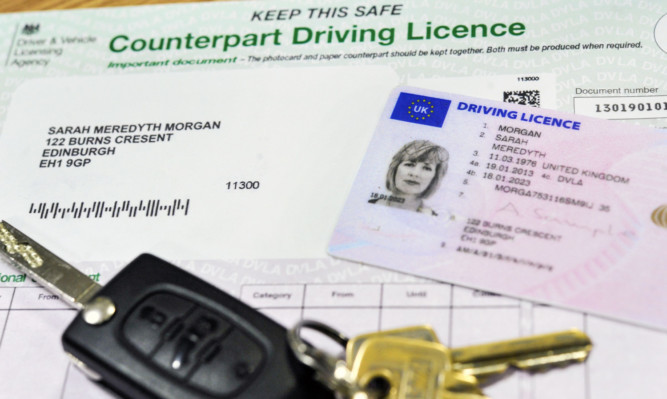Renting a car on a foreign holiday is already stressful enough.
You have to choose which company and what vehicle suits you. You need to manhandle your luggage to the rental desk.
You have to get used to driving on the right. And you need to become au fait with the country’s different driving regulations (in France, for example, it’s illegal to drive without reflective jackets, a warning triangle and a breathalyser inside the vehicle).
Now, another layer of chaos is being added by a system that is meant to simplify driving regulations.
Worthless
The Driver and Vehicle Licensing Agency (DVLA) is ditching the paper counterpart to your plastic driving licence. Following June 8, the paper portion which lists and fines and penalty points accrued will no longer be of any worth.
Instead, information on motoring misdemeanours will be held digitally by the DVLA. In recent years, the main use for the green paper section has been for hiring cars, especially when abroad.
The changes, according to motoring groups, are going to make hiring a car abroad more difficult.
Previously, you would show your paper licence to the hire desk, allowing them to check if you have any endorsements.
After June 8, you will have to log on to the DVLA website the day before you go on holiday, enter your driving licence number and obtain a special code to give to the hire company. This then allows them to check your details.
So that’s one snag. The bigger problem, though, is that the code is only valid for three days. So if your trip lasts longer than that, or if you don’t need a car until the second week of your holiday, you will need to find somewhere to log on and download the code.
For those without internet access, a DVLA phone number will also be available but call costs from abroad could mount up, especially if you have to wait in a queue.
In yet another complication, the code is not a legal requirement. It will be up to each car hire company whether they demand it or not. So you should check the terms of your car hire documents before travelling.
This complication has sparked fears that hire companies might want you to supply a new code every three days, or even refuse a rental altogether.
Going digital
The scrapping of the paper counterpart comes as part of a drive by the DVLA to digitise many of its services and reduce costs. Last year, the paper tax disc was killed off after more than 90 years in existence.
The DVLA is recommending destroying the counterpart after June 8 but the AA says drivers should keep hold of the document in case hire companies are unaware of the changes and demand to see it.
AA president Edmund King said: “Not all car rental companies, or indeed traffic police abroad, will be aware of the changes, so a ‘belt and braces’ approach of also taking the counterpart might help,”
The RAC said many drivers were unaware of the changes.
“Our research shows that with a month to go before the paper counterpart to the photocard licence disappears, 55% of drivers are not aware of the planned change,” said RAC spokesman Simon Williams.
The British Vehicle Rental and Leasing Association (BVRLA) said the situation still was not clear.
“Due to the short notice provided by the DVLA and the need to thoroughly test the new system, many car rental companies are still finalising their plans for the UK and abroad,” said a BVRLA spokesperson.
The industry is not wild about the changes either. The chairman of the Freight Transport Association (FTA) has written to the DVLA saying the new online system will make driver licence checking extremely difficult for business and needs to be reconsidered as a matter of urgency.
David Wells said: “FTA is not convinced that the proposed online checking system will be robust enough to cope with industry demands.”
The exceptions
There are a couple of exceptions to the new rule. It does not apply if your licence dates from pre-1998, before the photocard had been introduced. And the impending changes do not apply in Northern Ireland.
Whether the record of our driving misdemeanours is held on a piece of paper or solely in digital format will not affect the worst-behaved in our society. Last month, the Institute of Advanced Motorists uncovered a motorist who had racked up an astounding 40 penalty points for a dozen driving offences despite never having held a full or even provisional licence.
For more information, or to check your driving licence details, log on to www.gov.uk/government/news/driving-licence-changes
